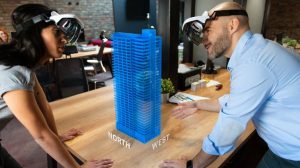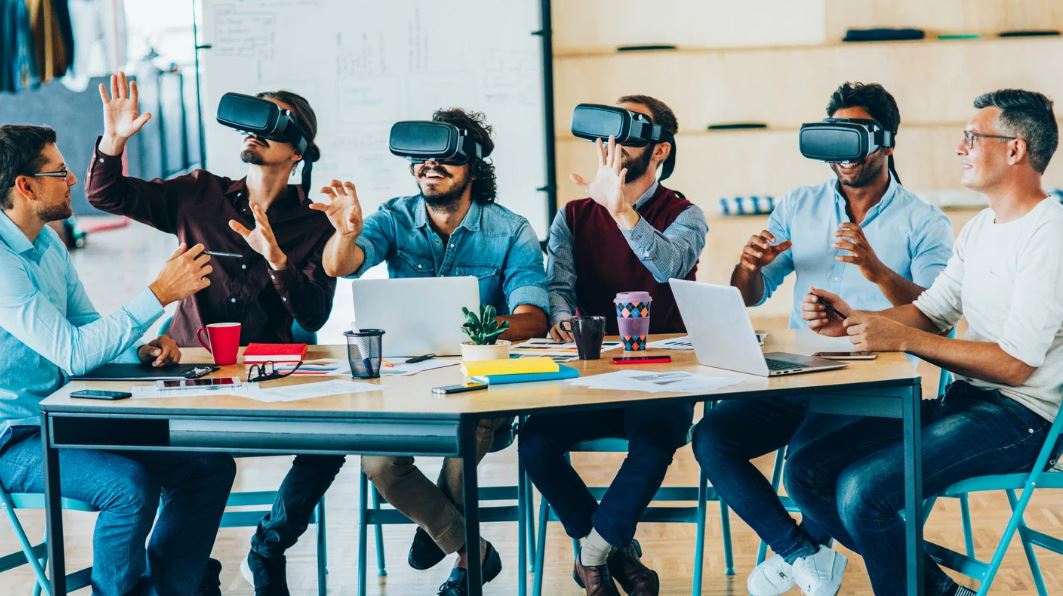Table of Contents
ToggleVirtual Reality (VR) and Augmented Reality (AR) have transformed how people experience digital platforms. Originally developed for gaming and simulations, these technologies now reach far beyond their early uses.
By combining interactive visuals with responsive environments, VR and AR create more immersive experiences than traditional online formats.
In the case of online casinos, players can now step into realistic gaming spaces, interact with dealers, and feel as though they are inside a physical casino.
This new level of immersion is setting a standard for entertainment and is influencing industries as diverse as retail, healthcare, and education.
The Rise of VR and AR in Online Casinos

Online casinos have been quick to adopt VR and AR to stand out in a competitive market. With VR headsets, players can walk through digital gaming floors, explore themed environments, and engage with others in real time. Augmented Reality, on the other hand, allows digital casino elements to overlay a player’s real-world surroundings.
This makes the experience both interactive and flexible, appealing to those looking for more than just a screen-based game. The adoption of these technologies demonstrates how online platforms can integrate immersive design to attract and retain players in a crowded industry.
Many players are also turning to non GamStop casinos for the variety and flexibility they provide compared to more traditional betting platforms. These sites often adopt new technologies faster, experimenting with VR and AR to enhance the gaming experience.
They also tend to offer broader selections of games, larger bonuses, and access to international providers, which adds to their appeal.
By combining these advantages with cutting-edge immersive tools, online casinos give players more engaging options while maintaining the same core features of fairness and entertainment. This willingness to innovate has influenced how other sectors view the use of VR and AR.
Impact on the Retail Sector
Retailers have taken inspiration from VR and AR applications in online casinos by creating more engaging shopping environments. Virtual showrooms now allow customers to walk through digital stores, examine products in detail, and even interact with sales assistants virtually.
Augmented Reality apps give shoppers the ability to place furniture in their own living rooms or try on clothes digitally.
These practices mirror the immersive qualities that have made VR casinos popular, showing how the principles of interactive environments and personal engagement can translate into higher customer satisfaction and stronger sales.
Healthcare and Medical Training
The healthcare industry has also drawn from the success of VR and AR in entertainment sectors. Just as casinos create safe and immersive spaces for play, hospitals and medical schools use similar technology to simulate real-life scenarios.
Surgeons can practise complex operations in a VR environment, while AR systems can provide real-time overlays during training exercises.
The interactive design ensures that medical professionals can improve their skills without risk to patients. This adoption demonstrates how immersive tools pioneered in entertainment are now directly benefiting critical areas of society.
Real Estate and Property Tours

The real estate market has also felt the influence of VR and AR, pioneered by online casinos. Instead of relying solely on photographs, estate agents now offer immersive property tours. Potential buyers can walk through homes virtually, exploring every detail as if they were physically present.
Augmented Reality tools allow users to redesign spaces, change furniture layouts, or visualise renovations before committing to a purchase.
These interactive features save time and add value, much like how VR and AR enhance casino platforms by making experiences more engaging and informative.
Tourism and Travel Experiences
Tourism has embraced VR and AR to bring destinations closer to potential travellers. Inspired by the immersive environments of VR casinos, travel companies now offer virtual tours of cities, landmarks, and hotels.
Users can experience what it feels like to be there before booking. Augmented Reality adds layers of information during real-world visits, enhancing guided tours or museum experiences.
This combination of pre-travel exploration and in-visit interactivity helps the tourism industry promote destinations more effectively, mirroring how online casinos use immersion to attract players to their platforms.
The Entertainment Industry at Large
Beyond casinos, the entertainment industry has rapidly expanded its use of VR and AR. Concerts, theatre performances, and sports broadcasts are now experimenting with immersive formats that place viewers inside the action. These developments reflect the same principles applied in online casinos: immersion, interactivity, and realism.
By offering a sense of presence, entertainment providers can create unforgettable experiences for audiences. The overlap between gaming and broader entertainment highlights how the casino industry has been a pioneer in showing how VR and AR can redefine engagement.
Workplace Training and Development

Businesses are increasingly adopting VR and AR for employee training, borrowing ideas from the casino industry’s immersive models.
From practising machinery operations to learning customer service skills in simulated environments, VR training provides hands-on experience without real-world risks. Augmented Reality can guide staff through tasks by overlaying instructions or safety reminders in real time.
These practical uses mirror the engaging qualities of VR casinos, showing how immersive technologies can help industries improve workforce skills, efficiency, and safety standards.
Innovation Across Sectors
The integration of VR and AR into online casinos has done more than revolutionise digital gaming. It has shown other industries the potential of immersive technology to create value, improve training, and elevate customer experiences.
From retail and real estate to healthcare and tourism, many sectors have borrowed principles first explored in casino entertainment.
Overseas casinos in particular have pushed innovation forward by experimenting with new tools and expanding player choice. As these technologies continue to evolve, the influence of VR and AR will only grow, shaping the future of digital interaction across industries.




